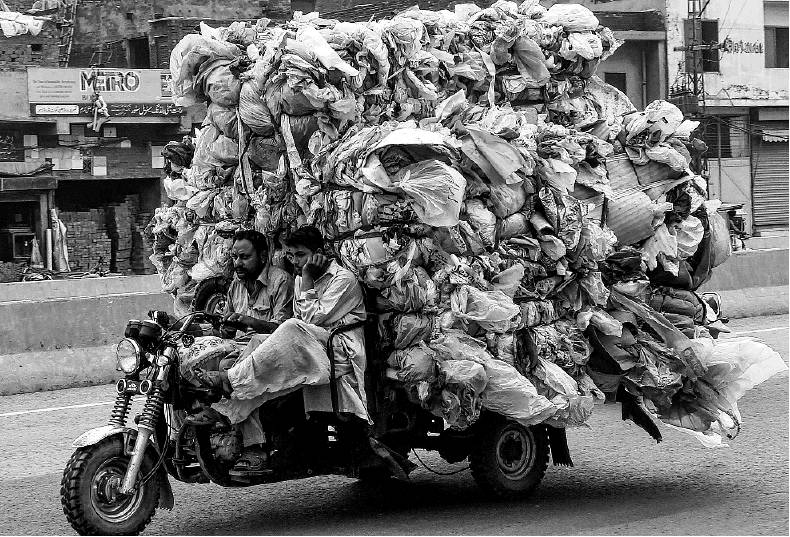Pakistan bans single-use plastic bags, sets steep fines to cut pollution problem
By Pamela Constable WASHINGTON POST
ISLAMABAD, Pakistan — Each time someone in Pakistan runs out to the store for a carton of milk, a half-pound of loose sugar or an after-school snack, it comes in aflimsy plastic bag that usually gets thrown away.
If all those bags are added up, officials estimate, they total 55 billion a year. Easily torn and too weak to use again, they end up clogging city drains and sewers, piled up in vacant lots and parks, ingested by grazing goats and dogs foraging for food, and polluting canals and streams.
Now the government is about to take a drastic first step toward eliminating this public eyesore and environmental hazard. Beginning Wednesday, all single-use polyethylene bags will be banned in the capital region of about 1.5 million people. Anyone who uses, sells or manufactures them will face a fine.
“This is something we have to do. You cannot burn, bury, reuse or recycle these bags,” said Malik Amin Aslam, asenior official at the Ministry of Climate Change, which is spearheading the effort. “The health of 200 million people is at stake.”
The ban is the latest project in Prime Minister Imran Khan’s green initiative, which began last year with a campaign to plant 10 billion trees to fight deforestation. It also follows similar actions in other developing countries, such as Kenya and Tanzania, where discarded plastic has become a noxious scourge. Today, more than 40 countries have either banned or taxed single-use plastic bags.
Aslam said he had consulted with officials in Kenya, which two years ago enacted the world’s toughest ban, with penalties of up to four years in prison and $40,000 for using or selling a bag.
“The Kenyans told us a sudden ban is easier to enforce than trying to collect atax or fee, because there is no incentive to bribe,” he said.
The fines in Pakistan will also be steep — $31 for using a single bag, $63 for selling one and up to $31,000 for manufacturing them. The national per capita income is $1,200 per year. Shoppers are not likely to be aggressively pursued, but companies that make and supply the bags have been warned that they will be inspected to enforce the ban.
Local manufacturers have protested, saying the move will put half a million employees out of work. Aslam said ministry officials are meeting with the owners to discuss remedies such as converting their machines to produce other goods.
To encourage customers to obey the law, officials have introduced colorful cloth tote bags, which they have distributed at weekend markets and will place in hundreds of stores starting Wednesday. They have promoted the bags on social media, accompanied by catchy slogans and images of trash heaps on fire and birds caught in plastic bags.
“We cannot bring change through force,” one federal capital commissioner posted on social media. “Our slight change in habits will do miracles for future generations.”
